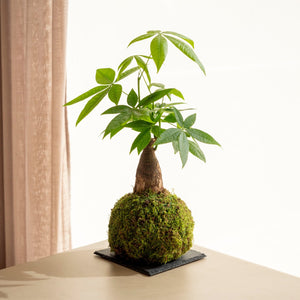Curiosities and myths about Pachira
Mar 11, 2024
Discovering the curiosities and myths of Pachira
The Pachiraalso known as money tree or good luck tree, is characterized by its unique appearance and its symbolism associated with prosperity. In this article, we will explain some interesting curiosities and myths about this beautiful plant.

The Pachira is native to the tropical regions of Central America, specifically to countries such as Mexico, Costa Rica and Guyana. With the scientific name of Pachira aquatica, it is a medium-sized tree with bright green leaves and a distinctive trunk that resembles a twisted braid. Its flowers are small and white in color, followed by nut-shaped fruits.
Mythologies surrounding the Pachira
Pachira leaves are said to bring good luck. According to popular belief, if a person touches or rubs the leaves of the plant, they will attract prosperity and fortune into their life. This belief has led many people to have a Pachira in their home or workplace as a good fortune charm.
On the other hand, one of the most distinctive characteristics of the Pachira is the unusual shape of its trunk. The trunk of the plant twists and intertwines, creating a unique braided appearance. This peculiarity has led to the belief that Pachira has the ability to trap negative energy and transform it into positive energy.
In many cultures, Pachira is considered a symbol of abundance and prosperity. It is believed that having this plant at home or in a place of business will attract wealth and success. That is why it is also called the money tree.
Finally, it is also believed that the Pachira has certain healing properties, although there is no scientific confirmation of this.

In conclusion, the Pachira is a plant that has been wrapped in myths and beliefs related to good luck and prosperity. In addition, its braided trunk and its beautiful leaves make it a unique and beautiful plant to decorate any corner of your home.
In Omotesando we have two models of Kokedama based on this beautiful plant: The Pachira Kokedama and the Pachira Mini KokedamaTake a look at them!


